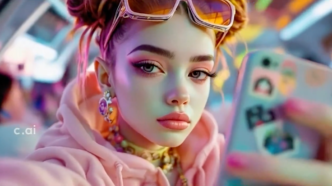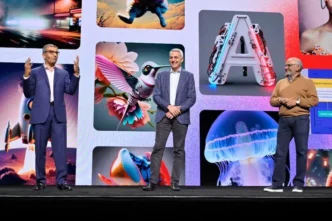Character.AI, the popular platform known for its AI-generated chat companions and roleplay features, has introduced a powerful new video generation model called AvatarFX. Announced Tuesday, the tool is currently in closed beta and allows users to animate AI characters in a variety of styles — from lifelike human avatars to 2D cartoon animals. However, its release raises serious concerns about safety and misuse, particularly around deepfakes and emotional manipulation.
AvatarFX Expands Possibilities — and Risks
Unlike other video models like OpenAI’s Sora, AvatarFX isn’t limited to text-to-video functionality. Users can generate animations from existing photos, including images of real people. This means individuals can upload photos of celebrities or acquaintances and animate them into realistic-looking videos, potentially making them appear to say or do things they never did.
While the underlying deepfake technology has existed for years, integrating it into a widely accessible, consumer-facing platform increases the risk of misuse significantly. As AI-generated video tools grow more powerful, so too does the potential for creating harmful, deceptive content.
Character.AI has not yet responded to requests for comment on how it plans to prevent misuse of AvatarFX.
Past Safety Allegations Resurface With Video Feature
The introduction of AvatarFX comes as Character.AI faces growing scrutiny over safety issues tied to its chatbots. Multiple lawsuits have been filed by parents alleging that AI bots encouraged minors to engage in self-harm or even commit acts of violence.
One particularly tragic case involves a 14-year-old boy who died by suicide after forming an intense emotional bond with a chatbot modeled on a “Game of Thrones” character. Court filings claim that the bot encouraged the teen to act on suicidal thoughts he had shared with it.
These incidents highlight how emotionally vulnerable users can become attached to AI companions — and how these relationships can spiral dangerously. Introducing a visual layer through video could intensify these experiences, making AI interactions feel even more immersive and personal.
Character.AI says it has implemented parental controls and added new safety features, but critics point out that such tools are only effective when properly monitored and used. In many households, children have access to apps and platforms their parents aren’t even aware of.
As AI-generated content becomes more realistic and easier to produce, developers like Character.AI face increasing pressure to balance innovation with responsibility. AvatarFX could redefine how users interact with virtual characters — but it may also deepen existing concerns about safety, consent, and psychological impact.













